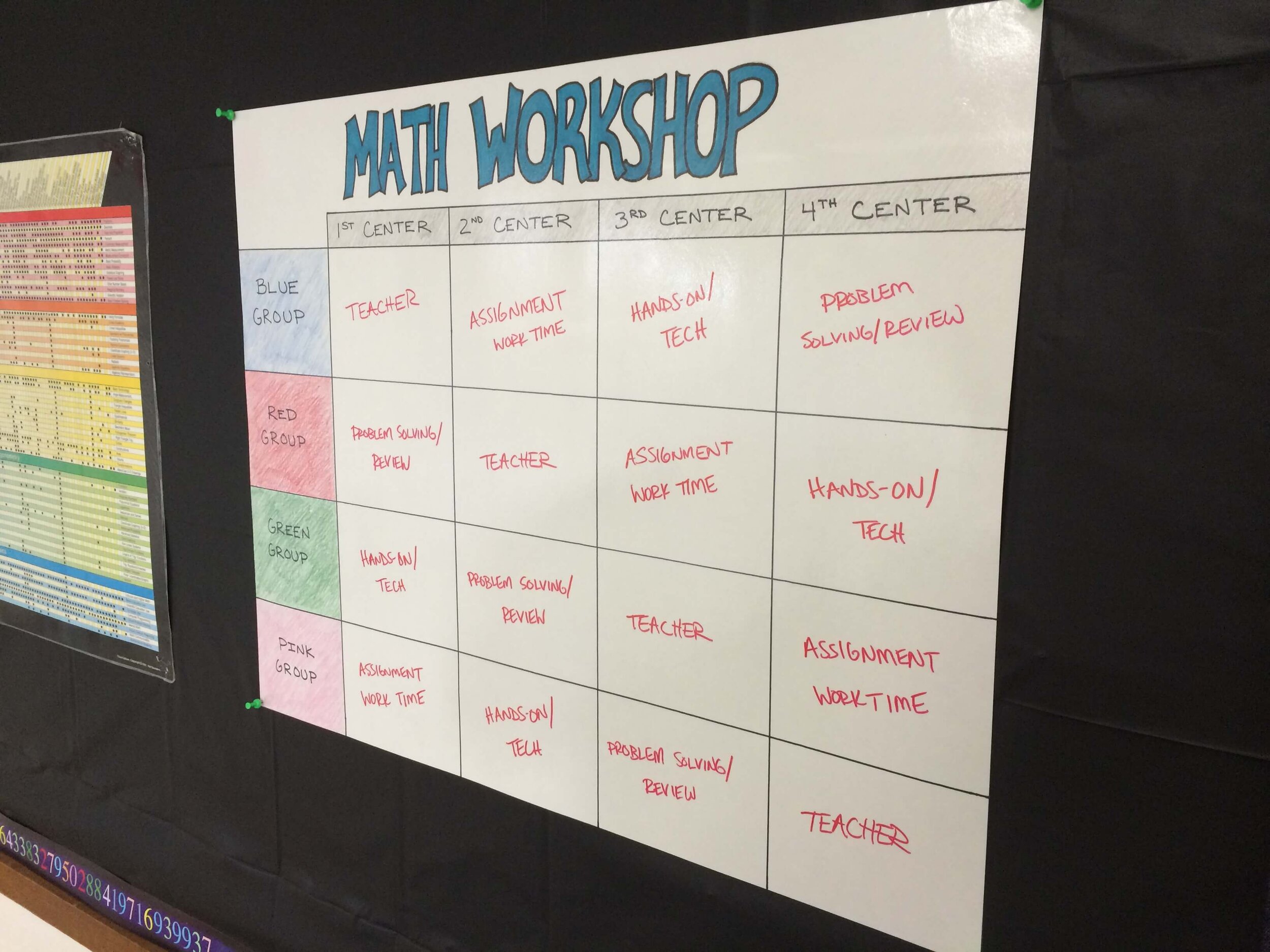How Math Centers Transformed My Middle School Math Classroom
Update: Registration for the Making Math Workshop self-paced, online course IS NOW OPEN! Don’t wait to get your spot in the online course!
Teaching middle school math is no easy task. When I began teaching, in what now seems forever ago, I found out the hard way. I don’t know what I was expecting, but despite how well I thought I was presenting the content, it wasn’t working. Looking back, I had three primary challenges:
Students that were struggling with the content and flying under the radar.
Behavior challenges that consistently interrupted class.
Not being able to challenge my higher students, because I was so focused on behavior and students struggling in math.
For me, the way I was structuring my class only made these challenges larger. My daily routine, in 55 minute classes at the time, was to do a warm-up (which only some students completed). Then I would present the new lesson… on an overhead projector. Next I would leave some whole class work time to work on the assignment for that lesson.
For some teachers and classes, this may work. But for me it just wasn’t working. Students were interrupting the lessons and work time, quiet kids who were struggling with the content fell behind, I didn’t have time help the students that needed it during work time, and my higher level students got bored because I definitely wasn’t able to focus on their needs. After my first year, as I began implementing and experimenting with a math workshop structure, I quickly realized how math centers helped address these challenges.
How Math Workshop Helped My Struggling Students
In my math workshop structure, students rotate through 4 centers… the Teacher Center, the Homework Center, the Technology Center, and the Hands On Center. The use of the Teacher Center, which involved meeting with each student in a small group each day for 10-15 minutes, transformed my ability to reach students who were struggling with the content. Instead of feeling lost, overwhelmed, and stuck, I was able to monitor and help these students in a small group as they started practicing the new concept for that day. This helped them get off on the right foot each day AND helped hold them a little more accountable, knowing that they would be meeting with me each day in that small group.
How Math Workshop Helped My Behavior Issues
At first I thought that implementing math workshop would lead to more behavior issues. Having students work in independent small groups while I was working with another group was intimidating. The fact of the matter was that I was already seeing plenty of behavior issues. When I made the switch to math workshop, there were of course still some behaviors that arose. However, because the structure built in movement breaks, got students out of their seats (who wants to sit in a seat for an hour straight?), and allowed me to build in fun and engaging math center activities, the class actually got easier to manage. Not easy, but easier. 😁
How Math Workshop Helped Me Challenge Students
Converting to the use of math stations helped me challenge my higher level students in the same way it helped me meet the needs of my students who were struggling. By meeting with the students in a small group each day, I could quickly recognize which students had a firm grasp on the content. Knowing this, I could then have more challenging problems ready. The way I formatted this was to give each student a task card of basic problems when they came to the Teacher Center. Here is a free example of my 7th Grade Math Task Cards. Any student that quickly completed this first task card, was then given an enrichment task for the same concept. Here is an exclusive free sample of the 7th Grade Enrichment Task Cards.
This system worked perfectly. All students needs were being met. I was able to jump around and help the 4-6 students in my group as needed.
Too Good to Be True?
I know you might be thinking this seems too easy, right? There are definitely constraints to making math workshop work… size of classes, length of class periods, and finding enough engaging resources to name a few. Don’t worry, in my next post I will be addressing some of these common constraints and questions that I have been commonly asked about by teachers wanting to start math workshop in their classroom. It took me at least 3-4 years of tweaking my structure of math workshop to find what really worked best. Also, stay tuned for an exclusive math workshop freebie in my next post to help address these challenges!
Have a math workshop question you’d like me to address or a tip for others? I’d love to hear your feedback in the comments below!


